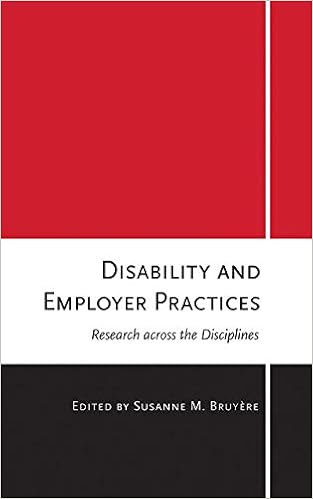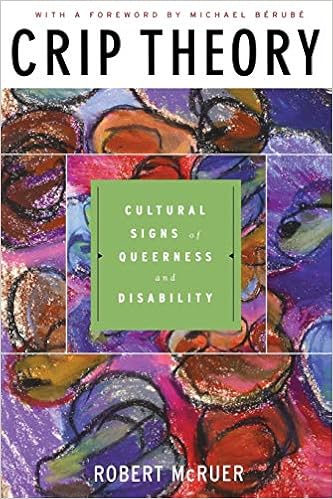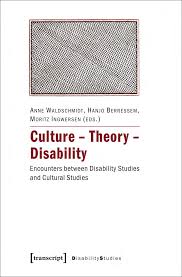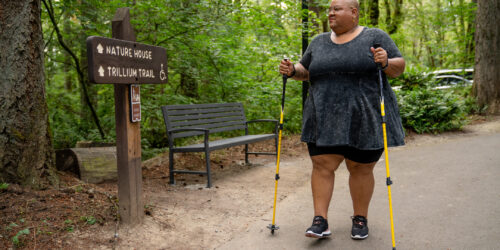October Virtual Display #2: Disability Awareness Month
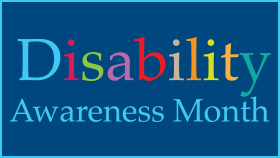
Clark College student library workers Rebekah Semrau and Olivija Langaityte assisted in the creation of this post.
October is National Disability Awareness Month, which is also recognized as National Disability Employment Awareness Month. According to the U.S. Census Bureau, this month brings awareness of the issues that disabled people can face in the workplace, as well as celebrating their accomplishments. Clark College Libraries has worked to collect resources that focus on disability and employment, as well as focusing on the history of disabled people and experiences of disabled people who have other systemically non-dominant identities. For more information about the disability rights movement, check out our July 2020 virtual display.
Follow the links below to check out some ebooks, videos, articles, and other digital resources. To access ebooks click the link next to “Get It Now At:” and sign in with your lab username and password. Some may have a link at the top of the page that says “Check for full text” instead. Non-library resources do not require a Clark Labs account.
eBooks from Clark College Libraries
|
|
Other Resources
Articles
3 Ridiculous Examples of Invasive Ableism at Work – And How It Can Change
“A working disabled person is a working person – and more importantly, a person. From one working person to another, I’d like to remind able bodied people that if you value professionalism, boundaries, and consent, then respecting disabled people’s boundaries when you work with us should matter to you – whether you’re at your job, their job, a job you share, or on the street.”
5 misconceptions about accessibility that harm people and products
“It’s important to make a product applicable, handy, and inclusive for people with different abilities.
Now, I bet when you hear the term “accessibility,” you think of blindness, wheelchairs, and older people, and are pretty sure they are not your target audience. Well, not exactly.
Let’s discuss the most common misconceptions about accessibility so we don’t neglect it in our product designs.”
The Accessibility Profession Can Be Stressful, Exhausting, and Frustrating.
“Most people choose accessibility as a career option for a specific reason having to do with their personal connection to disability — either they or someone close to them has a disability. These individuals understand at a personal level what a discriminatory barrier inaccessible technology represents.
Frequently, accessibility managers need accommodations. If for some reason, they don’t, many testers who report to them will. If an organization has a convoluted accommodations process, it sends the message that people who need accommodations are “less than” someone without a disability.”
Disabled Women’s Equal Pay Struggles Often Go Unheard — But You Can Help Include Them
“Women with disabilities face a striking wage gap, too. The median pay for women with disabilities is 72 cents for every dollar earned by men with disabilities. And in 2016, an American Association of University Women report found that people with disabilities made only 68 cents for every dollar non-disabled people earned.”
Disability Justice in the Workplace
“At its best, ableism is the byproduct of unacknowledged advantages we each have that allow us to move through the abled world with physical and mental ease. At its worst, ableism in the workplace positions disability as bad, rare, unwanted and impossible to overcome.”
Disability Justice Is LGBT Justice: A Conversation with Movement Leaders
“This podcast was recorded in July 2014, following the first White House panel on LGBT and disability issues in June of that year. The discussion features three advocates for LGBT and disability justice.”
The Importance And Impact Of The American With Disabilities Act
“The ADA has brought our country a long way in many realms, but advocates know that there is still more work to be done.”
Overview of College Resources for Students with Disabilities
“This guide explains your legal rights as a student with disabilities, both physical and learning disabilities, and the campus resources that can provide you with assistive services and tools. Additionally, we list a number of sites, apps, and software resources designed to aid students with specific types of disabilities, whether physical impairments or learning disabilities.”
Websites
“The Disability Visibility Project is an online community dedicated to creating, sharing, and amplifying disability media and culture.”
“Rooted in Rights tells authentic, accessible stories to challenge stigma and redefine narratives around disability, mental health and chronic illness. As part of Disability Rights Washington, our Seattle-based team of disabled video producers, editors and digital organizers partner with both local coalitions and national advocacy campaigns to fight for concrete changes for our community.”
Videos and Podcasts
My name is Annie, I am a chronically ill, disabled, queer, Latinx, woman of color. On this channel, I create weekly videos (as long as my health allows) on various topics that include my observations and experiences with body image, gender, race, LGBT+, disability, chronic illness, and mental health. This channel also contains my creative work; I share music performances, visual art, pieces of writing, as well as uplifting influences and favorites in the creative arts.
The Accessible Stall – Podcast
“The Accessible Stall is a disability podcast hosted by Kyle Khachadurian and Emily Ladau that keeps it real about issues within the disability community. Because we each have different disabilities and mobility levels, we approach everything we talk about with two unique viewpoints, offering our listeners a fresh insight into how differences in disability can color your experiences and perspectives. And we never shy away from offering our honest opinion. Even if they go against the grain of the disability community at large, we always speak our minds.”
CRIP CAMP: A DISABILITY REVOLUTION | Full Feature | Netflix
“On the heels of Woodstock, a group of teen campers are inspired to join the fight for disability civil rights. This spirited look at grassroots activism is executive produced by President Barack Obama and Michelle Obama. ”
Disability Visibility Project – Podcast
Featured Image Photo Credit: diversity.utexas.edu
